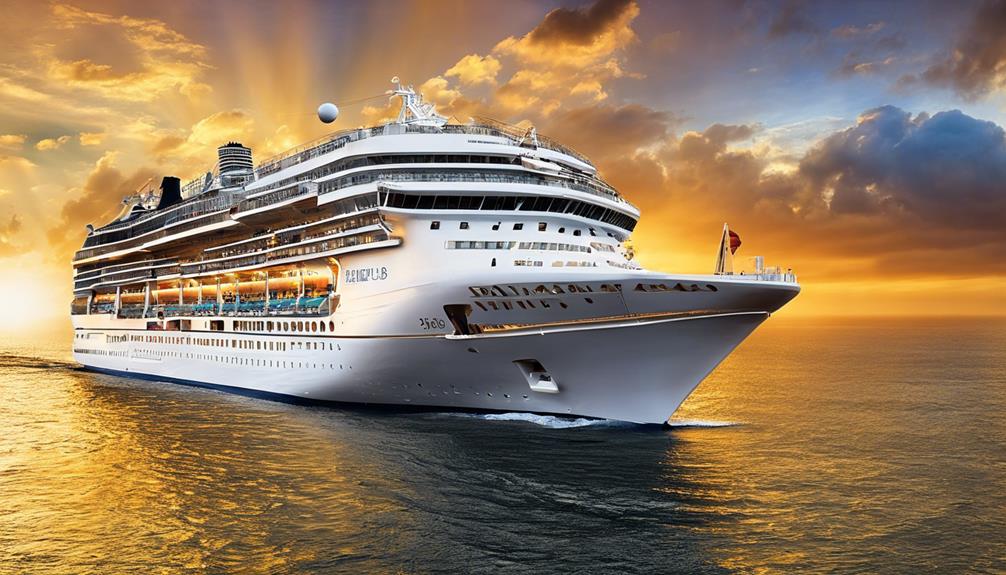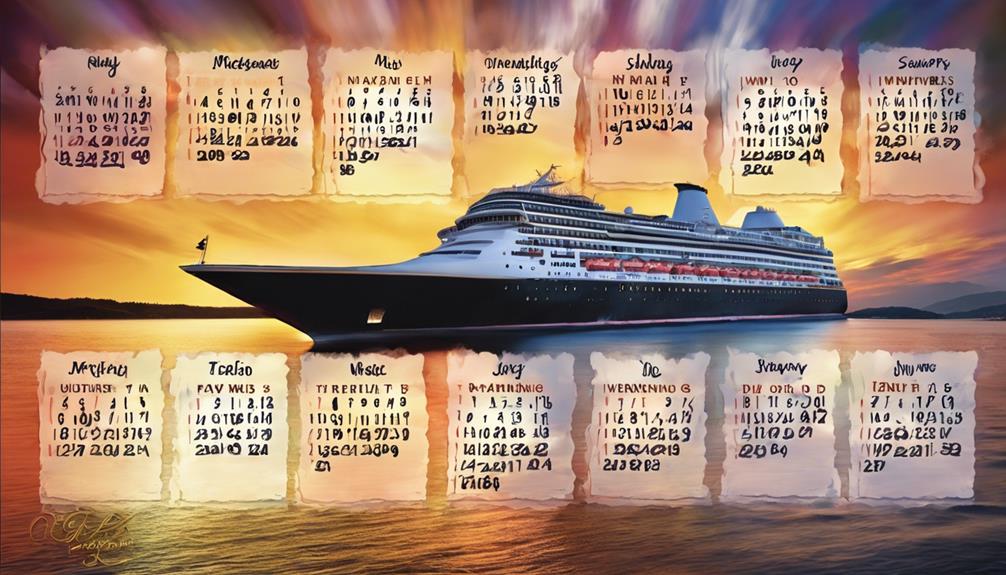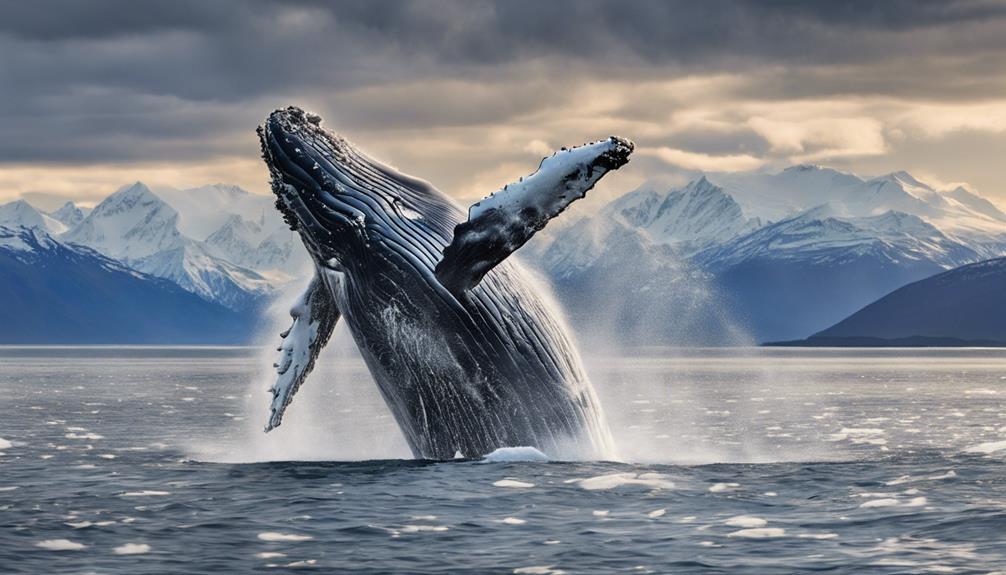Beginners Guides
How Often Does Carpet Need to Be Replaced
2025

We have all seen the gradual effects of wear and tear on carpets over time. Have you ever thought about how long your carpet can actually last?
It's a topic that often goes unnoticed until it becomes a pressing concern. The answer might surprise you, and it could have a significant impact on your living space.
Key Takeaways
- The lifespan of carpet varies based on material quality, foot traffic, and maintenance routines.
- High-quality carpets made from durable materials like wool or nylon can last 10 to 15 years with proper care.
- Carpets in high-traffic areas or homes with pets and children may show signs of wear sooner, typically around 5 to 10 years.
- Carpets in commercial settings may need replacement every 3 to 5 years.
Average Lifespan of Carpet
The average lifespan of carpet varies depending on factors such as material quality, foot traffic, and maintenance routines. Proper carpet maintenance, including regular vacuuming and professional cleaning, can significantly extend its lifespan.
High-quality carpets made from durable materials like wool or nylon are more resistant to wear and tear, lasting anywhere from 10 to 15 years with proper care. However, carpets in high-traffic areas or homes with pets and children may show signs of wear sooner, typically around 5 to 10 years.
Factors such as sunlight exposure and humidity levels can also impact the longevity of carpet fibers. In commercial settings, where foot traffic is heavier, carpets may need replacement every 3 to 5 years.
It's essential to address any spills or stains promptly to prevent permanent damage and maintain the carpet's appearance. Understanding these factors and implementing a proactive carpet maintenance plan can help homeowners and businesses optimize the lifespan of their carpets and minimize the need for premature replacements.
Signs It's Time for Replacement

After understanding the factors affecting the lifespan of your carpet, recognizing the signs indicating the need for replacement is crucial for maintaining a clean and visually appealing space. Here are four key signs that indicate it's time to replace your carpet:
- Wear and Tear: Over time, carpets experience wear and tear, especially in high-traffic areas. If you notice bald patches, matting, or significant fraying, it may be time to consider replacing the carpet. These signs of wear and tear can make the carpet appear old and worn out, affecting the overall aesthetic of the space.
- Stain Resistance: Despite regular cleaning and maintenance, carpets can lose their stain-resistant properties over time. If you find that the carpet is becoming increasingly difficult to clean and stains are setting in more easily, it might be a sign that the carpet fibers are no longer capable of repelling stains effectively.
- Persistent Odors: Lingering odors that persist even after thorough cleaning could indicate that the carpet fibers have absorbed a significant amount of odorous substances over the years, and it may be time to replace the carpet to eliminate the smell completely.
- Allergies and Health Issues: If occupants of the space experience unexplained allergies or health issues that could be related to poor indoor air quality, it might be worth considering replacing the carpet, as old carpets can harbor allergens, dust mites, and other particles that impact air quality.
Factors Affecting Carpet Longevity
When considering the factors affecting carpet longevity, it's essential to assess the type of carpet fiber used and the level of foot traffic in the space.
Carpet material plays a significant role in determining its durability. For instance, nylon carpets are known for their resilience and resistance to wear, making them suitable for high-traffic areas. On the other hand, wool carpets are luxurious and durable but may require more maintenance to retain their appearance over time.
Additionally, maintenance practices are crucial in extending the lifespan of carpets. Regular vacuuming, prompt stain removal, and professional deep cleaning can significantly impact the longevity of carpets. Neglecting these maintenance practices can lead to the accumulation of dirt, debris, and stains, ultimately shortening the carpet's lifespan.
Furthermore, the level of foot traffic in a particular space is a key determinant of carpet longevity. Areas with high foot traffic, such as hallways and living rooms, may require more frequent maintenance and could benefit from carpets with higher durability.
Understanding these factors and their impact on carpet longevity is essential for making informed decisions about carpet selection and maintenance.
Tips for Prolonging Carpet Lifespan

To effectively prolong the lifespan of your carpet, it's essential to establish a regular maintenance routine that includes thorough vacuuming, prompt stain removal, and periodic professional deep cleaning. Here are some tips for prolonging your carpet's lifespan:
- Regular Vacuuming: Set a schedule for vacuuming at least once a week, focusing on high-traffic areas. Use a vacuum with a rotating brush or beater bar to effectively remove dirt and debris that can damage the carpet fibers.
- Prompt Stain Removal: Act quickly to remove any spills or stains to prevent them from setting into the carpet. Blot the affected area with a clean cloth and use a gentle cleaning solution to avoid damaging the carpet fibers.
- Professional Deep Cleaning: Schedule professional deep cleaning at least once a year to remove embedded dirt and grime that regular vacuuming may not reach. Professional cleaners use advanced cleaning methods to revitalize the carpet and prolong its lifespan.
- Protective Measures: Consider using area rugs or carpet protectors in high-traffic areas and under furniture to minimize wear and tear on the carpet. These protective measures can help maintain the carpet's appearance and extend its lifespan.
Professional Carpet Evaluation
Upon completing a professional carpet evaluation, it is crucial to carefully assess the overall condition, wear patterns, and any potential issues that may impact the carpet's longevity. We meticulously inspect the carpet fibers, backing, and edges for signs of wear, matting, or fraying. Additionally, we pay close attention to any discoloration, staining, or odors that may indicate underlying problems. Our evaluation also includes an analysis of the carpet's padding and installation to ensure they meet industry standards for support and durability.
| Aspects Assessed | Evaluation Findings |
|---|---|
| Carpet Fibers | Minimal wear and tear, no fraying |
| Backing & Edges | Some signs of wear, but no major issues |
| Discoloration & Stains | Several stains requiring deep cleaning |
| Odors | Slight odor, may need deodorizing treatment |
| Padding & Installation | Padding in good condition, installation meets standards |
In considering carpet maintenance, our evaluation helps determine the appropriate cleaning and maintenance schedule to prolong the carpet's lifespan and maintain its appearance. Additionally, we provide expert advice on flooring alternatives that may better suit the specific needs of the space, taking into account factors such as foot traffic, potential for spills, and desired aesthetic.
Frequently Asked Questions
Can Carpet Be Recycled or Repurposed Instead of Replaced?
Recycling options for old carpet include separating the fibers and using them in new products. Repurposing techniques involve transforming carpet into rugs or mats. Both methods help reduce waste and minimize environmental impact.
Carpet recycling can be cost-effective and beneficial for the planet. With proper techniques, old carpet can find a new life, avoiding the need for replacement and contributing to sustainable practices.
Are There Any Health Risks Associated With Keeping Old Carpet for Too Long?
Health risks associated with keeping old carpet for too long can include:
- Allergen buildup
- Mold growth
- Bacteria accumulation
Proper carpet maintenance is crucial to mitigate these risks, such as:
- Regular vacuuming
- Steam cleaning
- Prompt stain removal
Neglecting these tasks can lead to:
- Indoor air quality issues
- Potential health concerns
Therefore, it's essential to stay vigilant in maintaining and replacing carpet as needed to ensure a healthy living environment.
How Does Carpet Replacement Impact Home Resale Value?
When it comes to home renovation, replacing old carpet can significantly impact market value.
For instance, in a recent case, we upgraded the carpet in a home before putting it on the market. The new carpet gave the home a fresh, modern look, and it sold for a higher price than comparable homes with older carpet.
This demonstrates the positive impact of carpet replacement on home resale value.
What Are the Environmental Impacts of Carpet Replacement?
When considering the environmental impacts of carpet replacement, it's crucial to focus on environmental sustainability and manufacturing processes. Our industry expertise highlights the importance of choosing eco-friendly materials and sustainable manufacturing methods to minimize the environmental footprint.
Can Carpet Be Dyed or Treated to Extend Its Lifespan?
Carpet dyeing and treatment options can significantly extend its lifespan. For example, in our experience, we've seen carpets revitalized through professional dyeing and protective treatments, adding years to their usability.
Specialized services can refresh the color and texture, while treatments like stain resistance can prolong the carpet's life. These options are cost-effective and environmentally friendly, making them a worthy consideration for preserving and enhancing your carpet investment.
Conclusion
In conclusion, it's important to consider the average lifespan of carpet, which is typically around 10 years. However, with proper care and maintenance, it can last even longer.
One interesting statistic to note is that regular vacuuming can extend the life of your carpet by 50%, making it a crucial part of prolonging its longevity.
By staying informed and proactive, you can ensure that your carpet remains in top condition for years to come.
- About the Author
- Latest Posts
Introducing Ron, the home decor aficionado at ByRetreat, whose passion for creating beautiful and inviting spaces is at the heart of his work. With his deep knowledge of home decor and his innate sense of style, Ron brings a wealth of expertise and a keen eye for detail to the ByRetreat team.
Ron’s love for home decor goes beyond aesthetics; he understands that our surroundings play a significant role in our overall well-being and productivity. With this in mind, Ron is dedicated to transforming remote workspaces into havens of comfort, functionality, and beauty.
Beginners Guides
The Best Time to Cruise for Budget-Friendly Deals
Fulfill your wanderlust dreams without draining your wallet by learning the key to scoring budget-friendly cruise deals.

When it comes to finding budget-friendly cruise deals, timing is key. Imagine setting sail on the crystal blue waters of the Caribbean or exploring the stunning glaciers of Alaska without breaking the bank.
There's a specific window of opportunity that savvy cruisers keep an eye on to secure the best rates and save some serious cash. But how do you know when to book your next adventure to make the most of your budget?
Let's uncover the secrets behind scoring the ultimate cruise deals and making your dream vacation a reality.
Key Takeaways
- Booking during wave season in January to March ensures budget-friendly deals.
- Monitoring prices post-booking for drops leads to potential refunds or upgrades.
- Repositioning cruises in spring and fall offer cost-effective options.
- Leveraging loyalty programs maximizes savings for affordable cruising.
Ideal Seasons for Budget-Friendly Cruises
When seeking budget-friendly cruise deals, timing plays an important role in securing the best value for your money. Shoulder seasons such as September, October, and early December present excellent opportunities for travelers looking for cheaper fares. These off-peak times often offer discounted rates and fewer crowds, making it an ideal choice for budget-conscious individuals.
Additionally, booking during wave season in January and February can lead to significant discounts and promotions, maximizing savings on your cruise vacation.
Repositioning cruises during spring and fall are another fantastic option for savvy travelers seeking affordable deals. These cruises often provide cost-effective choices as cruise lines move their ships between different regions.
Avoiding major holidays and school breaks is also key to securing cheaper cruise fares and ensuring a more relaxed cruising experience. Moreover, sailing from Florida during off-peak times can offer a wide range of options and better deals for those looking to save on their cruise adventures.
Strategies for Booking Affordable Cruises

To secure the best deals on cruises, it's important to employ strategic booking approaches that maximize cost savings and value for your vacation. When aiming for budget-friendly cruise deals, consider the following strategies:
- Booking in Advance: Securing your cruise early, especially during wave season from January to March, can lead to lower rates and additional benefits.
- Monitoring Fare Changes: Keep an eye on fluctuating fares and be ready to book when prices drop to secure the best deal.
- Being Flexible with Travel Dates: Flexibility can be key in finding affordable cruise options, as adjusting your travel dates slightly can result in significant savings.
- Considering Repositioning Cruises: Exploring repositioning cruises or sailing during shoulder seasons can offer unique routes and discounted prices.
- Utilizing Loyalty Programs and Off-Peak Times: Take advantage of loyalty programs, monitor price drops, and consider traveling during off-peak times to maximize your savings on cruise vacations.
Best Times to Score Cruise Deals
During wave season from January to March, travelers can capitalize on the best times to secure budget-friendly cruise deals. Booking well in advance is key to snagging the most favorable timing and rates for your cruise.
Additionally, considering repositioning cruises during the spring and fall can offer discounted prices, making them a great option for those seeking budget-friendly deals. It's also advisable to keep an eye out for price drops even after booking, as this could potentially lead to refunds or upgrades for your cruise experience.
Leveraging loyalty programs or memberships can grant you access to exclusive discounts and savings on your upcoming cruise. By being proactive and strategic in your approach to booking and monitoring deals, you can maximize your chances of finding the best cruise deals that align with your budget and preferences.
Timing Tips for Budget-Friendly Cruises

Let's explore practical strategies for maximizing your savings on budget-friendly cruises through strategic timing tips. When aiming to secure the best cruise deals that align with your budget, consider the following insights:
- Booking in Advance: Take advantage of wave season from January to March to lock in lower rates and secure desirable cabin options.
- Monitoring Prices: Keep an eye on price drops even after booking to potentially benefit from refunds or upgrades, enhancing your overall cruise experience.
- Loyalty Programs: Utilize loyalty programs or memberships to access additional discounts and exclusive perks, making your budget-friendly cruise even more cost-effective.
- Nearby Ports: Opt for cruises departing from nearby ports to save on airfare costs, enabling you to allocate more of your budget towards onboard activities and excursions.
- Discounts Galore: Embrace the array of discounts available during wave season and beyond, ensuring that you snag the best possible deal for your budget-friendly cruise adventure.
When to Book for Cruise Savings
Securing cruise savings hinges on strategic timing and proactive booking practices. To find the best deals, consider booking during wave season from January to March when many cruise lines offer enticing discounts.
Booking early not only guarantees better rates but also provides a wider selection of cabin choices. Keep an eye out for fare changes even after booking, as price drops may occur, presenting an opportunity for additional savings.
While waiting for last-minute deals can sometimes lead to the cheapest rates, this approach often comes with limited cabin availability. To stay informed about price fluctuations, utilize tools like the Shipmate app and Cruise Critic for efficient monitoring.
Conclusion
To summarize, cruising during the off-peak season can help us save some serious dough. Booking early during wave season is key to scoring those sweet deals.
So, let's set sail and make some memories without breaking the bank. Remember, early bird gets the worm – or should I say, the cruise discount!
- About the Author
- Latest Posts
Introducing Ron, the home decor aficionado at ByRetreat, whose passion for creating beautiful and inviting spaces is at the heart of his work. With his deep knowledge of home decor and his innate sense of style, Ron brings a wealth of expertise and a keen eye for detail to the ByRetreat team.
Ron’s love for home decor goes beyond aesthetics; he understands that our surroundings play a significant role in our overall well-being and productivity. With this in mind, Ron is dedicated to transforming remote workspaces into havens of comfort, functionality, and beauty.
Beginners Guides
Best Time to Go on an Alaskan Cruise for Wildlife Watching
Get ready to discover the optimal time for wildlife enthusiasts to embark on an Alaskan cruise – the ultimate season for extraordinary encounters awaits!

One could contend that any time of year is fitting for an Alaskan cruise, but if you genuinely want to maximize your wildlife watching opportunities, timing is key.
While many months offer glimpses of nature's wonders, there is a particular period that stands out above the rest.
Join us as we explore the intricacies of the Alaskan wilderness and uncover the secrets of when to set sail on a journey that promises unforgettable encounters with some of the most magnificent creatures on earth.
Key Takeaways
- Prime months for wildlife viewing in Alaska are May, June, and September.
- Peak whale watching season is from mid-June to August.
- Best time for bear spotting is between July and early September.
- Ideal months for bald eagle sightings in southeast Alaska are from May to September.
Prime Months for Wildlife Viewing
During the prime months of May, June, and September, Alaska offers the best conditions for wildlife enthusiasts to observe a diverse array of animals in their natural habitats. June marks the beginning of summer, a time when the landscape comes alive with the sights and sounds of wildlife.
July and August are ideal for witnessing brown bears fishing for salmon and catching glimpses of majestic moose roaming through the wilderness. These months provide ample opportunities for up-close wildlife viewing experiences, especially during the salmon run when bears gather along the rivers to feast.
As the summer changes into September, visitors can look forward to spotting humpback whales during their annual migration, as well as witnessing the spectacular spawning salmon and caribou herds moving across the land. The shoulder seasons offer a unique chance to explore Alaska inside and out, with fewer crowds and mosquitoes, making it an ideal time for wildlife enthusiasts to immerse themselves in the natural beauty of the region.
Peak Whale Watching Season

In the peak whale watching season in Alaska, which typically spans from mid-June to August, enthusiasts have the best opportunities to witness humpback whales and other species in their natural habitat. Humpback whales are commonly sighted during the summer months as they feed on small fish and krill.
Killer whales, also known as orcas, are best spotted in May and June near Ketchikan, Juneau, and Seward, hunting for seals and other marine mammals. Grey whales migrate to southern Alaska in late spring, showcasing their impressive breaching behaviors.
Blue whales, the largest animals on Earth, may be seen in July and August, traveling through Alaskan waters in search of food. Whale sightings can vary depending on the specific month of your Alaskan cruise, so choosing the right time within the peak season is important for maximizing wildlife watching opportunities while sailing through these majestic waters.
Best Time for Bear Spotting
Ideally situated between July and early September, the peak time for bear spotting in Alaska coincides with the salmon influx that attracts these magnificent creatures to the creeks and streams of the region. During this period, Grizzly bears can be observed in their natural habitat, offering a thrilling experience for wildlife enthusiasts. Royal Caribbean Cruise Tours in Alaska often include bear viewing excursions, enhancing the opportunity to witness these powerful animals up close. For best bear sightings, consider visiting during the salmon run in July, a time when bears are actively hunting for fish in creeks and streams, particularly in locations like Ketchikan. Alaska's diverse landscapes and ecosystems provide ample opportunities for bear viewing, from observing black bears to encountering majestic brown bears. Whether through guided tours or remote float plane trips, Alaska offers a range of experiences to witness these iconic creatures in their element.
| Best Time for Bear Spotting | |
|---|---|
| July | Salmon run |
| Early September | Grizzly bears |
| Creeks | Streams |
| Ketchikan | Royal Caribbean Cruise Tours |
Ideal Months for Eagle Sightings

The peak months for perfect bald eagle sightings in southeast Alaska are from May to September. During these months, as part of an Alaska cruise, birdwatching enthusiasts can witness the majestic bald eagles in their natural habitat. Southeast Alaska, home to around 30,000 bald eagles, offers ample opportunities for wildlife watching, especially near bodies of water where eagles are commonly spotted.
The Sitka Cultural Discovery excursion is a great way to observe bald eagles up close, as they're frequently seen near streams and bodies of water. With approximately 470 bird species in the region, including the iconic bald eagle, Southeast Alaska provides a diverse birdwatching experience for nature lovers.
Whether soaring through the skies or perched on branches overlooking the water, bald eagles are a common sight throughout the summer months in this pristine Alaskan wilderness. For those seeking unforgettable eagle sightings and a chance to immerse themselves in Alaska's rich wildlife, visiting during the peak months offers an unparalleled birdwatching experience.
Optimal Time for Otter Encounters
Best timing for observing otters in Alaska ranges from early spring through the end of July. During this period, the chances of encountering these enchanting creatures are at their peak. Here are some key points to keep in mind for prime otter encounters during your Alaskan cruise:
- Steller sea lions: While otters are more prevalent during spring and early summer, Steller sea lions can be spotted year-round in Alaska. Keep an eye out for these majestic marine mammals as they often share habitats with otters.
- Streams and creeks: Otters are frequently seen near streams and creeks, making these areas prime locations for wildlife watching. Cruise along these waterways to increase your chances of a memorable otter sighting.
- Wildlife tours: Participating in wildlife tours in Alaska can enhance your otter encounters. These tours often provide opportunities to get up close to Steller sea lions, with otters sometimes making surprise appearances alongside them.
- Sea otters near the ocean: Whether near the ocean or inland water bodies, otters are adaptable creatures that thrive in various environments. Keep a lookout for these playful animals during your Alaskan cruise for a truly immersive wildlife experience.
Conclusion
To sum up, our investigation confirms that the best time to go on an Alaskan cruise for wildlife watching is indeed during the peak season of July.
The abundance of wildlife sightings, perfect weather conditions, and increased chances of spotting bears, whales, eagles, otters, and other fascinating creatures make July the ideal month for an unforgettable Alaskan wildlife experience.
Don't miss out on this prime opportunity to witness the wonders of nature in their natural habitat.
- About the Author
- Latest Posts
Introducing Ron, the home decor aficionado at ByRetreat, whose passion for creating beautiful and inviting spaces is at the heart of his work. With his deep knowledge of home decor and his innate sense of style, Ron brings a wealth of expertise and a keen eye for detail to the ByRetreat team.
Ron’s love for home decor goes beyond aesthetics; he understands that our surroundings play a significant role in our overall well-being and productivity. With this in mind, Ron is dedicated to transforming remote workspaces into havens of comfort, functionality, and beauty.
Beginners Guides
The Best Time to Go on an Alaskan Cruise
Journey through the Alaskan wilderness at its prime, uncovering the unique factor that sets the best time to go on an Alaskan cruise apart.

When considering the best time to start on an Alaskan cruise, May and September emerge as the top contenders. These shoulder seasons present an array of advantages that cater to both seasoned travelers and those new to cruising.
With the promise of better deals, reduced crowds, and lower prices, an Alaskan adventure during these months is not only cost-effective but also offers a more intimate experience of the region's breathtaking beauty.
However, there is one important factor that sets apart these shoulder seasons from the rest, and it's not just about cost or crowd size.
Key Takeaways
- Late-May to mid-June: prime for wildlife photography and bear sightings.
- Mid-June to August: ideal weather, ample sunlight, and wildlife encounters.
- Early September: peaceful cruise experience with fall foliage views.
- Late September: witness the mesmerizing Northern Lights on Alaskan cruises.
Best Time for Wildlife & Activities
In late-May to mid-June, we find the ideal time for capturing stunning wildlife photography in Alaska. As the daylight hours extend, providing ample opportunities to witness the natural beauty, this period is perfect for spotting humpback whales breaching the waters or observing bears feasting on the abundance of salmon. Cruise excursions during this time offer unforgettable experiences, allowing you to witness the wildlife in their natural habitat.
Denali National Park opens its doors to wildlife enthusiasts in mid-May, providing a chance to explore the diverse flora and fauna. Additionally, different species of salmon reach their peak at varying months, creating a dynamic environment for wildlife viewing. For those interested in experiencing the vibrant fall foliage, early to mid-September showcases Alaska's landscape in a breathtakingly colorful display, attracting wildlife like never before. Whether you're an avid photographer or a wildlife enthusiast, late spring to early summer is the best time to commence on an Alaskan adventure.
Ideal Months for Good Weather

Mid-June to August stands out as the prime window for experiencing excellent weather conditions during an Alaskan cruise, offering temperatures ranging from 50-70°F and up to 22 hours of sunlight, ideal for enjoying outdoor activities and remarkable wildlife sightings. The pleasant weather in mid-summer guarantees a comfortable and enjoyable cruise experience amidst Alaska's stunning natural surroundings. This period is perfect for wildlife viewing, with sightings of brown bears, moose, whales (belugas, humpbacks, orcas), seals, and dolphins being quite common.
- Warm temperatures ranging from 50-70°F
- Up to 22 hours of sunlight
- Excellent wildlife viewing opportunities
- Ideal conditions for outdoor activities and wildlife spotting
Choosing to cruise between mid-June and August guarantees a delightful experience in Alaska, with the perfect blend of comfortable weather, extended daylight hours, and the chance to immerse yourself in the beauty of the region's diverse wildlife and landscapes. This period is widely regarded as the best time for Alaska cruises, offering opportunities to explore stunning glaciers, national parks, and charming coastal towns. Travelers can spot humpback whales, bald eagles, and grizzly bears as they revel in the breathtaking scenery. Whether you’re hiking through verdant forests or simply soaking up the awe-inspiring views from the ship’s deck, an Alaska cruise during this peak season promises unforgettable memories.
Optimal Time for Avoiding Crowds
For a peaceful Alaskan cruise experience with fewer crowds and wallet-friendly options, consider setting sail in early September. This time marks the change from summer to autumn, offering stunning views of fall foliage without the hustle and bustle of peak tourist season.
Late September also presents an excellent opportunity to witness wildlife in their natural habitat. Imagine catching a glimpse of majestic humpback whales breaching the surface, observing the mesmerizing sight of spawning salmon, or marveling at the sight of caribou starting on their annual migration.
The cooler temperatures create a comfortable setting for exploration, allowing you to enjoy the serenity of Alaska without the summer crowds. With fewer tourists around, you can immerse yourself in the beauty of the landscape and wildlife without distractions.
Prime Time for Northern Lights

With the arrival of late September, prepare to be mesmerized by the celestial dance of the Northern Lights on your Alaskan cruise. As solar wind particles collide with air molecules, the Arctic sky lights up with unbelievable colors, creating a magical display that will leave you in awe. Alaska offers great viewing opportunities for the Northern Lights, especially during the late September timeframe. Although the lights are more brilliant in winter, you can still witness their beauty by the second week of September.
- Experience the breathtaking colors of the Northern Lights in the Alaskan sky.
- Marvel at the celestial dance created by solar wind particles and air molecules.
- Take advantage of the excellent viewing opportunities that Alaska provides for this natural spectacle.
- Enjoy the brilliant display of the Northern Lights even in late September, making your Alaskan cruise truly unforgettable.
Peak Wildlife Viewing Seasons
As we move from the mesmerizing spectacle of the Northern Lights to the enchanting domain of Alaska's wildlife, late May beckons as the prime time for experiencing the vibrant array of creatures that call this wilderness home.
During late May to mid-June, Alaska comes alive with wildlife awakening. Witness salmon runs, mothers with calves, and a variety of animals like moose, sheep, mountain goats, and black bears roaming the landscape. The cooler temperatures and increased daylight create the perfect conditions for diverse wildlife sightings.
This period offers a unique opportunity to observe Alaska's natural inhabitants without the peak tourist crowds, allowing for a more intimate and immersive experience. Whether you're a wildlife enthusiast or simply appreciate the beauty of nature, late May to mid-June provides a window into the rich tapestry of Alaska's ecosystem.
Conclusion
As we sail through the breathtaking Alaskan waters, surrounded by majestic wildlife and stunning landscapes, we can't help but feel the magic of this unique experience.
But there's one more surprise waiting for us as the sun sets on the horizon, painting the sky with hues of pink and purple.
Stay tuned for the grand finale of our Alaskan adventure, where nature puts on a show like no other.
Get ready to be amazed!
- About the Author
- Latest Posts
Introducing Ron, the home decor aficionado at ByRetreat, whose passion for creating beautiful and inviting spaces is at the heart of his work. With his deep knowledge of home decor and his innate sense of style, Ron brings a wealth of expertise and a keen eye for detail to the ByRetreat team.
Ron’s love for home decor goes beyond aesthetics; he understands that our surroundings play a significant role in our overall well-being and productivity. With this in mind, Ron is dedicated to transforming remote workspaces into havens of comfort, functionality, and beauty.
-

 Vetted2 weeks ago
Vetted2 weeks ago15 Best Drip Irrigation Systems to Keep Your Garden Thriving
-

 Vetted4 days ago
Vetted4 days ago15 Best Sports Laundry Detergents for Keeping Your Activewear Fresh and Clean
-

 Vetted6 days ago
Vetted6 days ago15 Best Tall Toilets for Seniors That Combine Comfort and Safety
-

 Vetted1 week ago
Vetted1 week ago15 Best Dish Scrubbers to Keep Your Kitchen Sparkling Clean
-

 Beginners Guides3 weeks ago
Beginners Guides3 weeks agoDesigning Your Retreat Center – Essential Tips
-

 Vetted4 weeks ago
Vetted4 weeks ago15 Best Tile Adhesives for Outdoor Use – Top Picks for Durable and Weather-Resistant Installations
-

 Beginners Guides3 weeks ago
Beginners Guides3 weeks agoAre Retreats Profitable
-

 Decor1 week ago
Decor1 week agoWhat Is Eclectic Home Decor

























